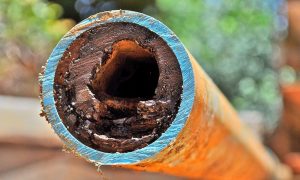
Think about hard water as having a lot of naturally-occurring chemicals that we don’t really need. If we remove these chemicals, we suddenly make the water purer, which is great for machinery and equipment that process water. Have you ever seen the drain on a wash basin or bathtub that has been routinely used with hard water? You’ll notice a chalky, whitish substance that has built up over time; this substance is hardened calcium and magnesium. This build up is often called “scale” because of its scaly appearance. Because hard water has higher concentrations of these scaly substances, drains, pipes, hoses and other hardware used for hydraulic systems can get gummed up fairly quickly.
But there are yet other reasons why hard water isn’t as preferable as soft water. When we use water for cleaning, bathing or swimming, we want to be able to mix detergents with it. These detergents may include soaps, additives, solvents or other cleaners that are intended to disintegrate and dissolve into the water. Because hard water is already saturated with calcium and magnesium, it doesn’t work well as a medium for dissolution. It’s for all of these reasons that we often want to ‘soften’ our water, making it much more useful for everyday purposes.
But softening water isn’t as easy as just running it through a filter. In most water softening systems available today, water is softened through a process called ion exchange, a fancy way of describing the chemical removal of much of the calcium and magnesium in hard water. This is done in a multi-chambered plumbing appliance that introduces precise amounts of sodium to convert the hard water into soft water, thus making it more usable in the home. Even though hard water isn’t a threat to our health, softening it using a water softening appliance makes sense for most households. If your water supply is hard and in need of softening, a water softener could be exactly what you need. The Lever Edge specializes in the design and implementation of water softening systems – contact us to learn more.
Share this Post

